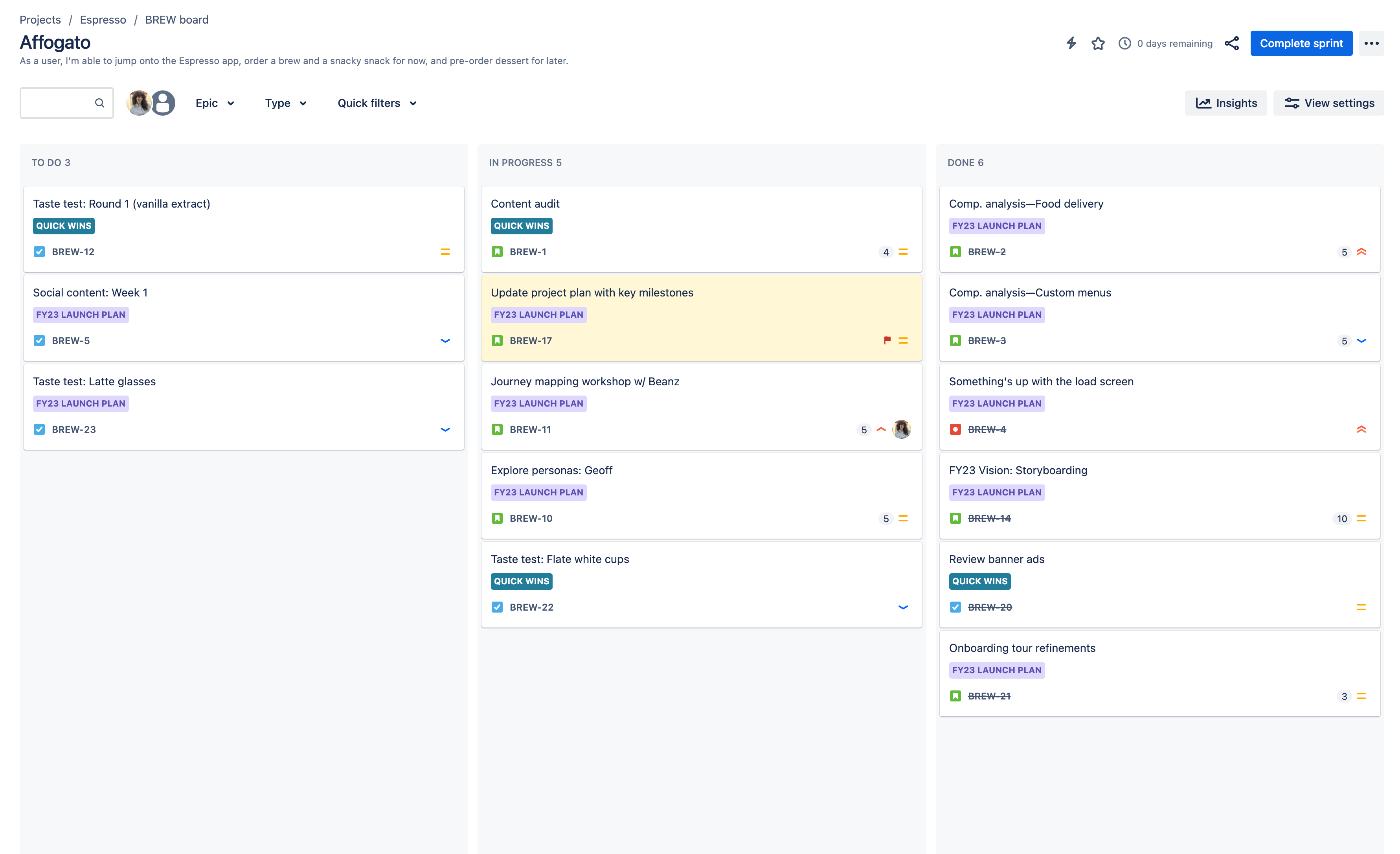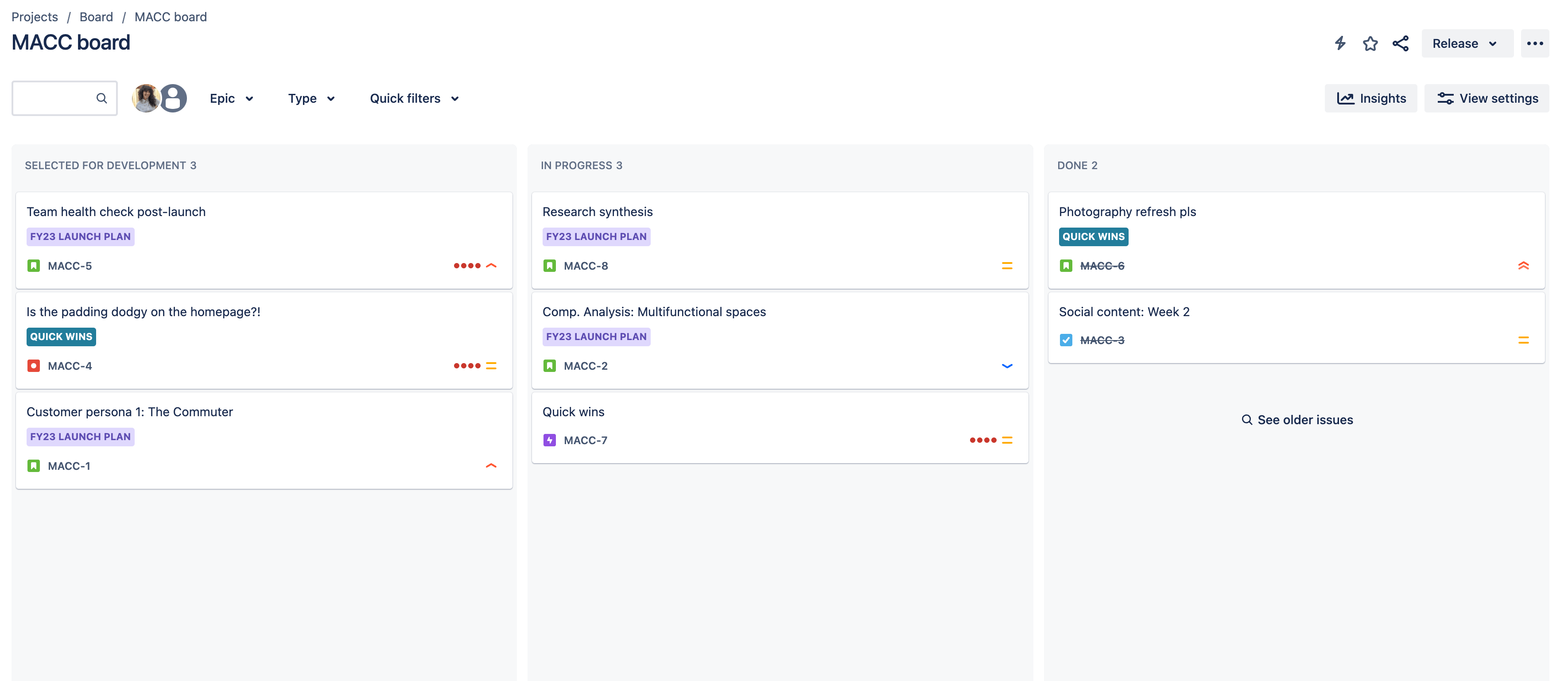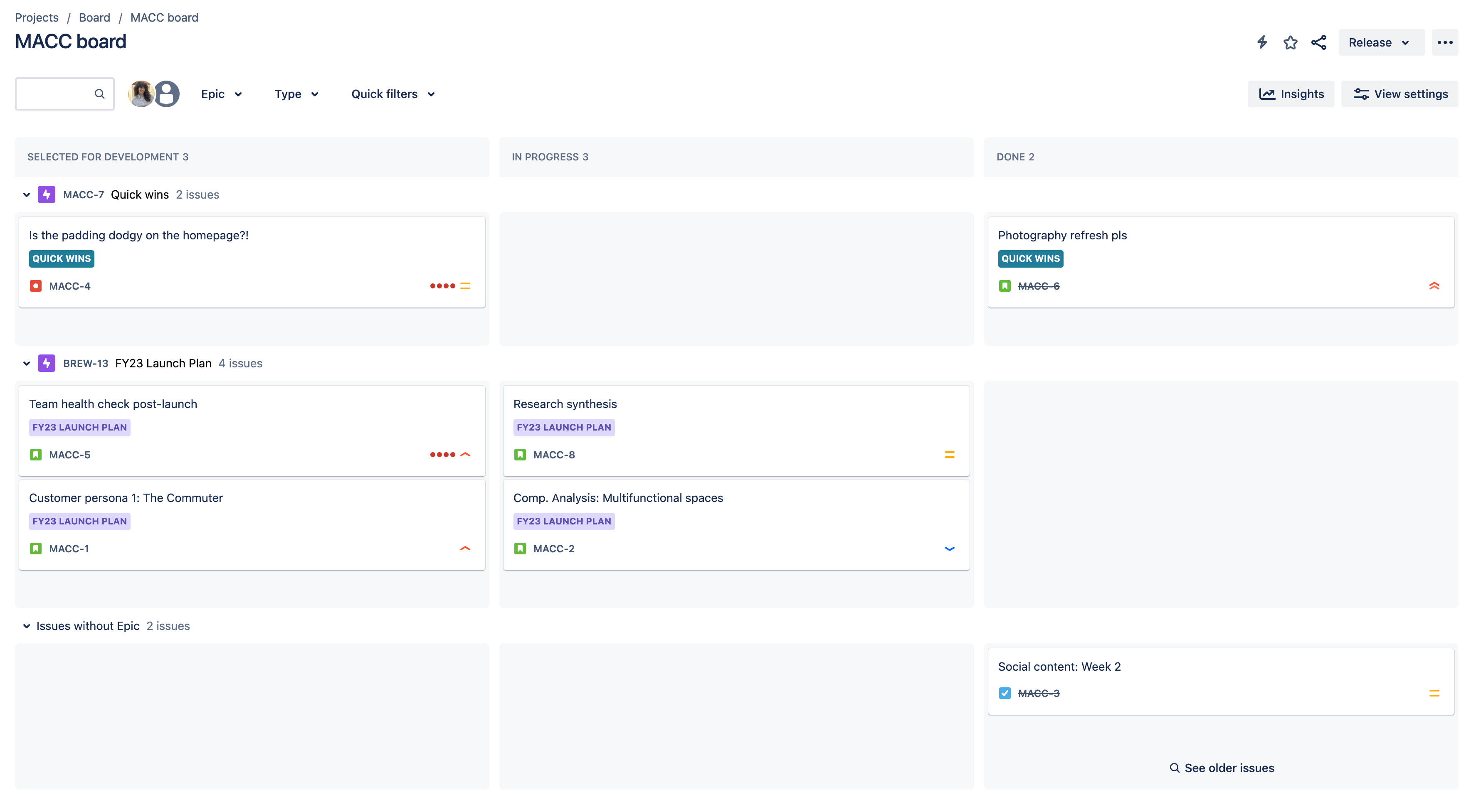Jira started as bug tracking and grew into a monster that can do everything but requires a PhD to configure properly. Been around since 2002, which explains why it feels like it was designed by people who clearly never had to use it under deadline pressure.
Here's the reality: Your company bought it because it's "enterprise-grade," and now you're stuck with it. The good news? It actually works once you survive the initial trauma.
The Stuff You'll Actually Use
Scrum/Kanban Boards: These show your tickets moving from "To Do" to "In Progress" to "Done." Sounds simple, right? Wrong. You'll spend 3 hours arguing about column names and workflow transitions. Pro tip: stick with the defaults until the pain of using them exceeds the pain of changing them.
Sprint Planning: Built for estimating story points and planning 2-week iterations. Works great if your team can agree on what a "story point" means. Spoiler alert: they can't. The burndown charts look pretty though, especially when they're basically vertical lines because everything got pushed to the last day.

Issue Tracking: This is what Jira was born to do, and it's still the best at it. Create tickets, link them to each other, track who broke what and when. The audit trail will save your ass during post-mortems.
JQL (Jira Query Language): This is SQL's angry cousin. Powerful as hell but feels like learning a new programming language. assignee = currentUser() AND status != Done AND updated < -1w becomes your daily mantra. Advanced queries like project in projectsLeadByUser() AND fixVersion in unreleasedVersions() AND priority = High will save hours of clicking through filters.

The Pain Points Nobody Warns You About
Setup Hell: Plan on 2-4 weeks if everything goes perfectly. It won't. Budget 2 months and your sanity. Someone on your team will become the "Jira Admin" - good luck with that career move. Stack Overflow is full of workflow configuration disasters that make you appreciate simplicity.
Performance: Large datasets make Jira slower than dial-up internet. Opening a board with 500+ tickets? Time to grab coffee. Or lunch. Maybe both. Sometimes it loads slower than a Windows 95 boot sequence.
Automation Rules: They work great until they don't, then nobody knows why tickets are auto-assigning to people who quit 6 months ago.
Real talk from production: We had a workflow that took 37 seconds to transition a single ticket because someone nested 15 automation rules. Debugging that nightmare took a full sprint. The error logs just said "Transition failed" with zero context - thanks Atlassian. Here's a Stack Overflow thread with similar horror stories.

GitHub Integration: Works fine for small teams. Scale to 50+ developers with multiple repos? Prepare for webhook timeout errors and sync failures that'll make you question your life choices.
The bottom line: Jira is like democracy - it's the worst option except for everything else we've tried. Under 10 people? Use Linear or GitHub Projects. Over 50? Welcome to Jira hell, population: everyone.
But before you resign yourself to this fate, you should understand what you're getting yourself into - starting with how it stacks up against alternatives and what it'll actually cost you.